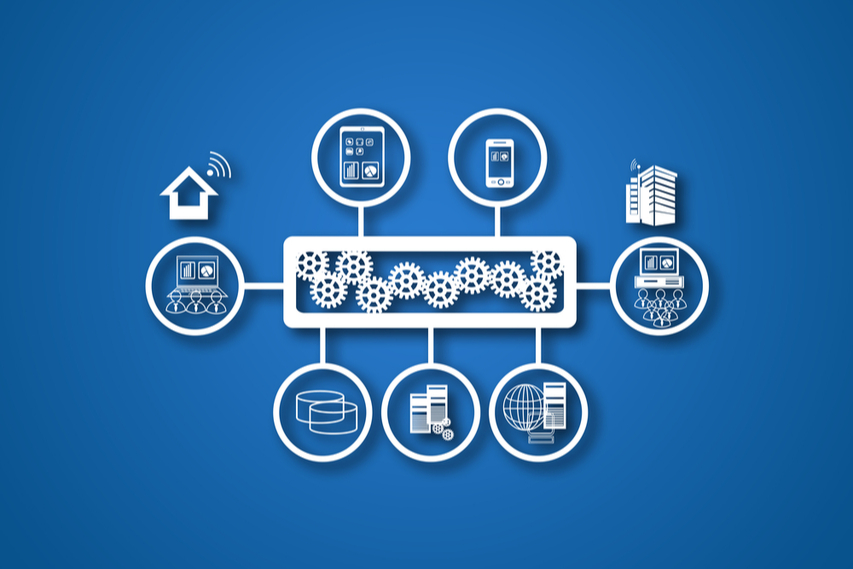
Legacy systems or applications are outdated technologies that are important for your day-to-day operations. These technologies are important for your business. Thus, you can’t remove them.
Most industries are still using legacy apps for doing their daily operations. These applications are mostly designed for some specific business operation. Thus, it is difficult to replace these applications with other general applications.
These legacy applications are important for various businesses. However, it also comes with a heavy cost. You can’t implement automation and AI on these applications. It is difficult to repair these legacy systems. Also, you can’t integrate these applications with new applications.
Most new IT graduates are not familiar with old programming languages. Thus, it will be very difficult to find capable developers for your applications. You can’t use these applications with other new digital initiatives like APIs, browsers, portals, and databases. This is going to be a problem for your staff if they are working on automation. You might need to develop new integration software for using your legacy applications. In this article, we are going to share some tips that will help you in improving your legacy applications.
When legacy applications are important for your business
It is very hard to maintain legacy applications. However, still it is very difficult to replace your legacy apps. Also, it is very risky when you consider it from an operations standpoint.
You might also experience service blackouts while replacing your legacy applications. It will also lead to productivity gaps which will occur when you are reconfiguring your systems. Most legacy applications have a very specific task. Thus, it is very difficult to replace these applications with the new application. You should use an incremental approach for replacing your legacy IT systems.
How to support legacy applications?
Legacy support is very important for businesses. You should focus on improving your legacy apps. It will ensure that your staff members are not getting disturbed. We are going to share some common approaches that you can use for supporting legacy applications.
-
Containerization
Most companies are now using this option. Containerizing will help you maintain and deploying your legacy applications quickly. You can use it for automating deployments. It will also provide more capabilities to you. You can easily roll back any bad update. It will help you in managing fixes and patches without causing any downtime.
You can also incorporate your current IT operations without rewriting your code. If your application is compatible, then you can also use microservices with it. Microservices will help you in adding new functionality to your app.
-
Rehosting
You should move your old applications to the cloud. Automated tools will help you in moving your applications to the cloud. It is the perfect approach for businesses that want to shift to the cloud. Ge Oil & Gas recently did this. Their total cost of ownership reduced by more than 52% after this step.
The best thing about the cloud is that you can access your applications from anywhere in the world. It will also help you in saving a lot of costs. You can work with good MSPs for reducing your cloud costs. Experienced MSPs like Bleuwire will help you in moving your legacy applications to the cloud. They will also help you in moving other data and applications to the cloud. This will ensure that you don’t need to worry about the cloud migration process. They will also help you in optimizing your cloud costs. Thus, you can save a lot of money by working with Bleuwire.
-
Replatforming
Replatforming will help you in increasing the efficiency of your old applications. It will also ensure that you can replace some of the functionality with new applications. For example, you can replace your database system with a new SaaS-based database. AWS is providing a new SaaS-based database to their customers.
Replatforming will actually help you in improving the performance of your applications. It will ensure that you can improve the scalability and security of your legacy application. Also, you don’t need to worry about changing the entire code. You can do minor changes for improving the scalability and security of your application.
-
Application management services
You will need access to experts for containerizing, re-platforming, or rehosting your legacy apps. Thus, you should consider working with a good MSP. Experienced MSPs like Bleuwire have years of experience. They already know how to deal with legacy apps. Thus, they can help you in improving both your business and legacy applications.
It can be very expensive to develop new applications for your business. Thus, you should consider improving your existing legacy applications. However, you need access to IT experts for managing your legacy applications. Bleuwire can help you with this. They will help you in managing and upgrading your legacy applications.
Your partner will also help you in moving your data and applications to the cloud. This is perfect for companies that want to move their data to the cloud. If you want to move your applications to the cloud, then you should consider working with a good MSP like Bleuwire. MSP providers will bring the necessary experience and knowledge that you need for improving legacy applications. This will ensure that you are free from the complex process of hiring internal developers.
Conclusion
Legacy applications can be important for your business. However, these applications can also slow down your business operations. Thus, you should consider improving your legacy and business applications. You can work with good MSPs like Bleuwire for solving this problem. Experienced MSPs like Bleuwire can help you in handling your legacy applications. They will help you in moving your data and applications to the cloud. This will ensure that you can enjoy the power of the cloud. If you need more information regarding IT services, then you can contact Bleuwire.
Contact us today to learn about Bleuwire™ services and solutions in how we can help your business.





